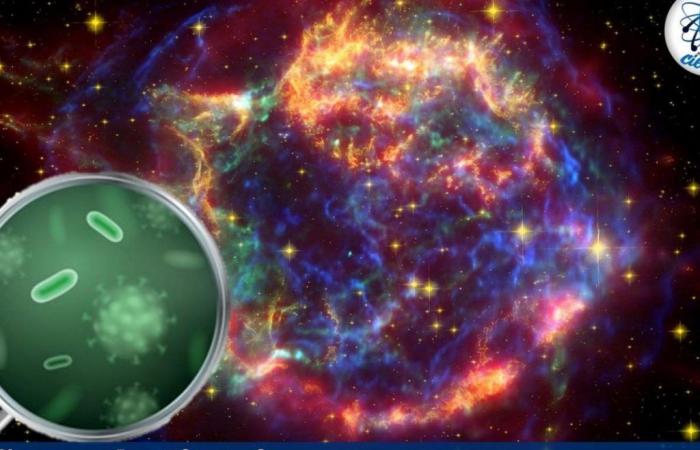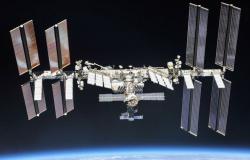We have always imagined finding extraterrestrial beings equal in size or larger than the humans who inhabit the Earth, however, we never thought that there may also be microscopic life in outer space that could cause harm to our health.
Recently, scientists from the National Aeronautics and Space Administration, better known as NASA, made an astonishing discovery of mutant bacteria found growing favorably in outer space, which in turn caused concern, since these batteries can cause harm to the health of astronauts.
This study was published in the scientific journal “Microbiome” and was carried out by NASA scientists from the Jet Propulsion Laboratory of the California Institute of Technology, in conjunction with the Department of Biotechnology of the Indian Institute of Technology Madras.
The bacteria investigated by NASA experts is a mutation of Enterobacter bugandensis and around 13 strains have been found isolated in different sites on the International Space Station (ISS), which show resistance to drugs and which have mutated in different ways that do not exist on planet Earth.
To carry out this study, the scientists used synergistic integration techniques of genomics, metagenomics and metabolic modeling, with which they deciphered the adaptation and persistence mechanisms of E. bugandensis in the ISS ecosystem.
The surprising thing about this bacteria is that it has survived the conditions of space, where there is a different gravity, cosmic radiation, increased carbon dioxide and more extreme temperatures than on Earth, in addition to living with other microorganisms, where it favored their mutual existence.
Pratyay Sengupta, lead author of this article, mentioned through her https://twitter.com/thinkbioinfo/status/1771952786776695118?ref_src=twsrc%5Etfw%7Ctwcamp%5Etweetembed%7Ctwterm%5E1771952786776695118%7Ctwgr%5E038d4d7a1552f46be29bed6c80761a145cc9ed82%7Ctwcon%5Es1_&ref_url=https%3A%2F%2Fwww.dw.com%2Fes%2Fdescubren-una-bacteria-mutante-a-bordo-de-la-estaciC3B3n-espacial-internacional%2Fa-68893524 that “This research delves into the genomic, functional and metabolic improvements of multi-resistant Enterobacter bugandensis strains aboard the International Space Station (ISS)”.
This discovery caused concern in the scientific community, since this mutant bacteria can seriously affect the health of astronauts and compromise their immune system, not only through infections caused by E. bugandensis, but also to other microorganisms found on board the ISS.
The study mentions that E. bugandensis It is mainly found in clinical samples, including the human gastrointestinal tract, and also possesses pathogenic traits, leading to a large number of infections.
It is also mentioned that the results showed that the bacteria E. bugandensis has shown different mechanisms of formidable resistance to existing antimicrobial treatments.
In addition to discovering the evolutionary trajectories of genes that contribute to functional adaptations and possible resistance to antimicrobials, where they found an average of 4568 genes of the mutation of E. bugandensis, while the terrestrial homologous species of this bacterium only have about 4426 genes.
In the end, the authors of this disturbing research conclude that they were surprised with the behavior, adaptation and microbial evolution in extreme and isolated environments of this bacteria on the ISS.
Likewise, they emphasize the need for solid preventive measures that guarantee the health and safety of astronauts, mitigating the risks associated with possible pathogenic threats to their health.
The scientists are amazed by their results and plan to conduct further research on other microorganisms to better understand microbial dynamics in extreme environments, assess their potential impact on space exploration and create effective preventive measures for astronauts’ health, according to a NASA statement.
This study shows how microorganisms can easily adapt to other environments, such as outer space, and survive stressful conditions; in addition to being a warning that in the future we may be exposed to infections caused by mutant bacteria from outer space.
Share science, share knowledge.






